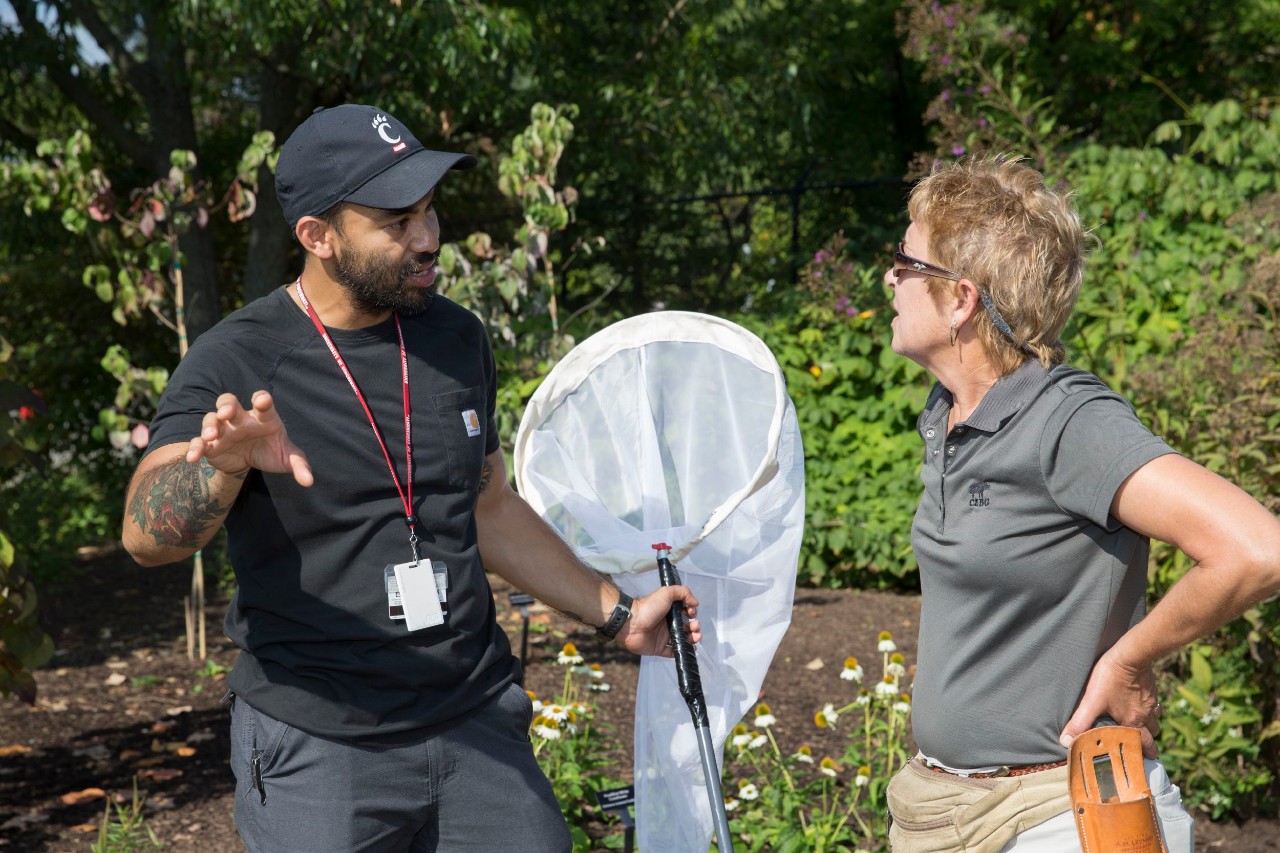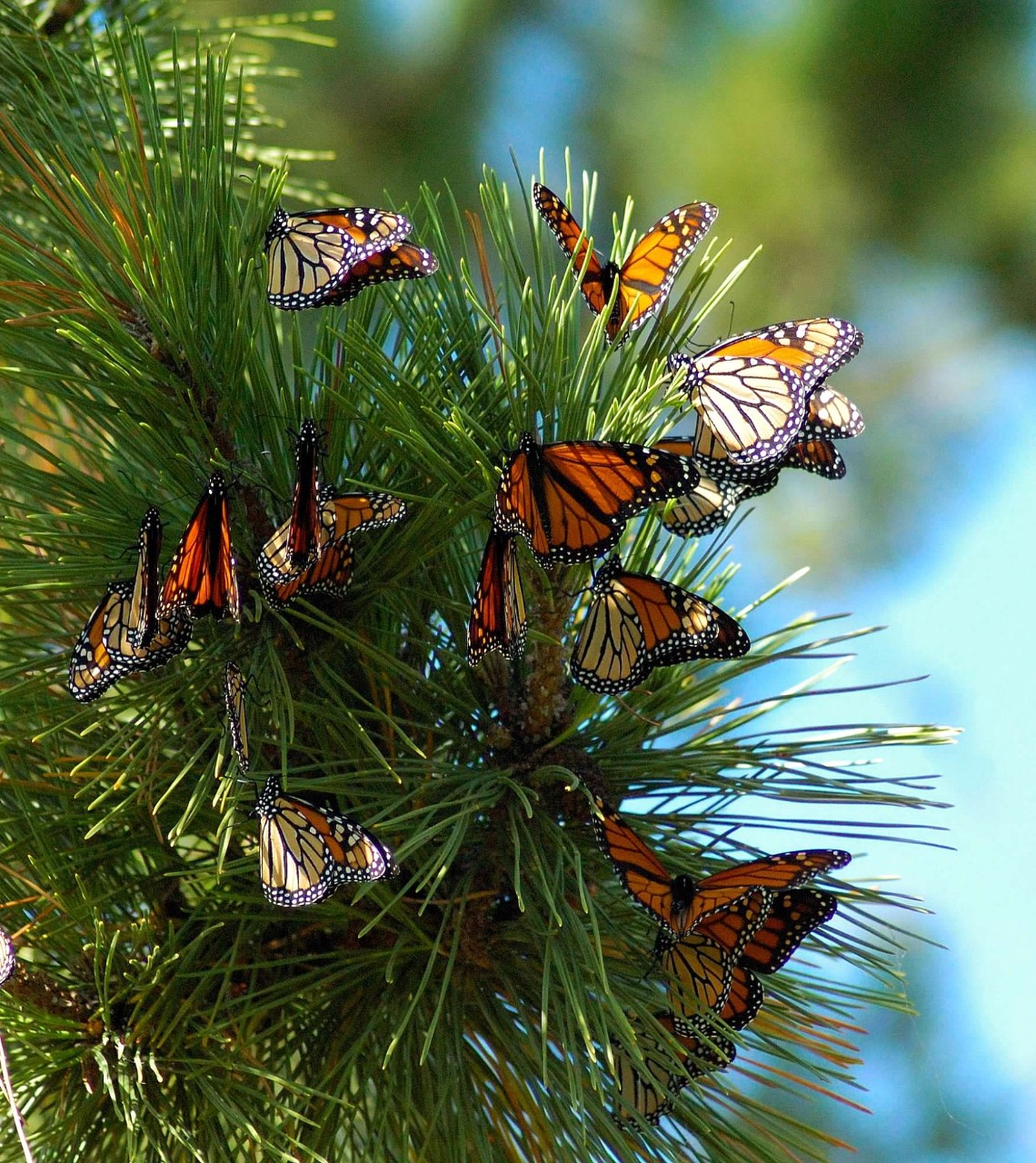Besides planting milkweed in the garden, people interested in helping monarch butterflies might want to turn off the porch light.
Biologists at the University of Cincinnati say nighttime light pollution can interfere with the remarkable navigational abilities of monarchs, which travel as far as Canada to Mexico and back during their multi-generational migration.
Researchers found that butterflies roosting at night near artificial illumination such as a porch or streetlight can become disoriented the next day because the light interferes with their circadian rhythms. Artificial light can impede the molecular processes responsible for the butterfly's remarkable navigational ability and trigger the butterfly to take wing when it should be resting.
"We found that even with a single work light that you find at a construction site, monarch butterflies treat that like it's the sun," UC assistant professor Patrick Guerra said.
The study was published in the journal iScience.

UC assistant professor Patrick Guerra studies the amazing navigation of monarch butterflies. Photo/Lisa Ventre/UC Creative + Brand
With their erratic, circuitous movements taking them to and fro across your garden, it might be hard to imagine monarch butterflies sticking to a rigid flight plan. But their migrations take some monarch populations thousands of miles to the same forests in Mexico where they spend the winter.
Monarchs are not unique in their multigenerational migrations, co-author and UC master's graduate Samuel Stratton said. He is pursuing a doctorate at the University of Michigan.

UC assistant professor Patrick Guerra, left, talks to Cincinnati Zoo & Botanical Garden exhibit manager Lyn Lutz about his students' butterfly project in the zoo's pollinator garden. Photo/Lisa Ventre/UC Creative + Brand
Monarchs rely on the darkness of night to process proteins key to their internal compass. These help the insects tell which direction to fly to reach their southern wintering grounds and return.
"The animal keeps track of day and night from this molecular system of production and degradation of proteins," Guerra said.
But monarchs exposed to nighttime light pollution, like a street lamp above their chosen roost in a cedar tree, can experience a phase shift, making their body think it's either earlier or later than it really is. That can throw off their sense of time, UC researchers found.
"It's like jet lag," Guerra said. "Essentially, their sense of time is disturbed."
UC postdoctoral researcher Adam Parlin, now with SUNY-ESF, led the study.
UC researchers demonstrated this effect by conducting controlled laboratory studies. They simulated and isolated the effects of light trespass perturbation on migratory animals normally active in the day.
"We found that you're messing with their day-night cycle. Light pollution can make them think that the day is longer or that the day starts sooner," he said.
So if you want to be hospitable to monarchs, Guerra said, maybe don't keep the light on for them.
"It's something to think about if you're making a pollinator garden or if you want to be eco-friendly," Guerra said.
Featured image at top: UC researchers found that artificial light can throw off the navigation of monarch butterflies. Photo/Michael Miller

Monarch butterflies often roost together when the temperatures dip at night during their migration. UC researchers found the butterflies are sensitive to bright lights when they're resting at night. Photo/Michael Miller






